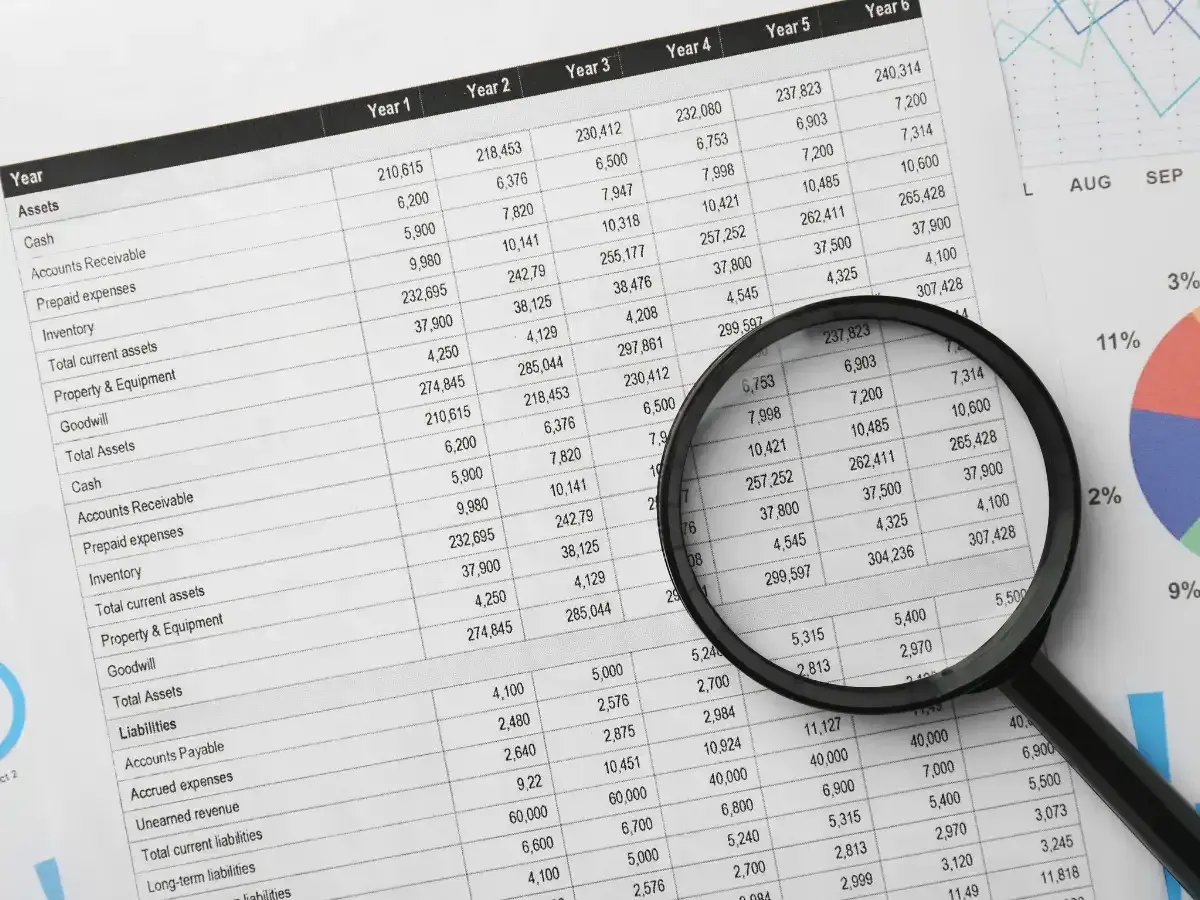The Complete Guide to Bookkeeping for an Insurance Agency

Selling policies is only part of running an agency. Behind the scenes, you're tracking commissions, paying carriers, managing premiums, and more. It's a lot to juggle, and it makes your bookkeeping more complicated than most businesses. Without a clear system, it’s easy to lose track of your cash flow or miss key tax deadlines. This guide helps you manage bookkeeping for an insurance agency and stay on top of your finances.
What Is Bookkeeping for an Insurance Agency (And Why Does It Matter So Much)?
Bookkeeping means tracking all your income and expenses to keep a clear view of your agency’s financial health. It provides a clear picture of how much you’re earning, where funds are going, and how sustainable your operations are.
The largest insurance market in the world is the United States, which holds around 45% of the global insurance market share. With so much financial activity, staying accurate isn’t just smart - it’s necessary. Poor recordkeeping can lead to tax issues, missed deductions, and compliance problems that put your agency at risk.
For independent agents, keeping accurate books is important because:
- You earn commissions, so tracking payments correctly is crucial
- You pay your own taxes
- You can deduct a lot of business expenses if you track them well
- You don’t want to scramble come tax season or face an audit
Even if you’re a one-woman or one-man team, clean books = peace of mind.
Step 1: Select a Bookkeeping Setup for Your Insurance Business
You’ve got options - pick what suits your style, but don’t overcomplicate it.
a. Use the Accounting Features in Your AMS
Accounting is easiest when managed directly through your Agency Management System (AMS). Most AMS platforms include built-in tools for tracking expenses, managing commissions, sending invoices, and generating reports. Keeping everything in one system reduces errors and saves time.
But software alone isn’t always enough. According to a survey featured in Risk Management Magazine, 41% of companies said inaccurate financial data hurt their ability to secure capital, 40% said it increased debt, and 42% reported damage to their reputation. Relying on professionals who understand insurance bookkeeping can protect your business from costly errors.
b. Use a Spreadsheet
If you’re just starting out or not ready to invest in software, a detailed Google Sheet or Excel file can do the trick. Just make sure you have clear columns for date, income, source, category, and notes. That said, this method of insurance agency accounting isn’t ideal in the long term. It is vulnerable to mistakes and can take up a lot of time due to having to enter data by hand.
Step 2: Make a Clear Separation Between Personal and Business Finances
One of the biggest mistakes solo agents make? Mixing personal and business money. It makes it hard to keep track of your agency expenses.
Here’s what to do:
- Open a dedicated business bank account
- Use a debit or credit card that is only used for business-related purchases
- Transfer money to your personal account when you take your pay
This makes your bookkeeping for an insurance agency cleaner, and you’ll thank yourself later when you’re sorting receipts.

Step 3: Record All Income
As an independent agent, your income can come from multiple carriers, residuals, bonuses, and even referral incentives. That’s a lot of streams to track.
Set up categories in your books like:
- New business commission (carrier-specific)
- Renewal/residual commission
- Bonuses or volume incentives
- Referral income
- Consulting or admin fees (if applicable)
Always match what you record with your commission statements. Sometimes, payments are delayed or underpaid, and it’s up to you to catch it.
Step 4: Log All Expenses
Running an agency comes with recurring costs. Keeping these expenses logged and categorized helps during tax time and makes budgeting easier.
Here are common insurance agency expenses you should track:
- Office rent or home office deductions
- Marketing and advertising (social media ads, printed brochures, etc.)
- AMS (Agency Management Systems), CRM, and/or lead management software
- Internet and phone bills
- Continuing education or licensing fees
- Payroll or subcontractor payments
- Professional services (accountants, legal advice)
- Travel and client entertainment
- Office supplies and equipment
Step 5: Choose Your Accounting Method
As a solo insurance agent, how you record your income and expenses affects how you see your business's financial performance.
- Cash accounting: This method logs income when you receive payments and expenses when you make payments. It’s easier to manage but doesn’t always reflect the full picture, especially if commissions come late or get taken back.
- Accrual accounting: This method records income when it is earned and expenses when they occur, even if no cash has been received or paid yet. It’s more detailed and takes more effort, but it gives you a clearer view of your profits and obligations over time.
Step 6: Do Monthly Reconciliations
Each month, reconcile your books using the following financial statements:
- Bank Statements
- Credit Card Statements
- Commission Statements from Carriers
Look for any discrepancies and fix them early. This will prevent surprises down the line, especially when preparing your year-end financials.
Step 7: Generate Financial Reports
Reports help you understand the story behind the numbers. Run these monthly (or quarterly):
- Profit & Loss Statement (P&L): P&L in insurance shows income minus expenses = your net profit.
- Balance Sheet: A snapshot of assets (like cash) vs. liabilities (like credit card debt).
- Cash Flow Statement: Monitors the money flowing into and out of your insurance business.
By reviewing these regularly, you’ll spot trends, overspending, or opportunities to reinvest in your business.
Step 8: Prepare for Taxes Year-Round
As a self-employed agent, you’re in charge of your taxes. There’s no HR department withholding for you, so:
- Save 25–30% of your income for taxes
- Pay estimated quarterly taxes (January, April, June, September)
- Issue 1099s if you pay any contractors
Keeping clean records will make working with your tax preparer (or filing solo) so much easier.
Step 9: Make Insurance Bookkeeping a Habit
Set aside time every week to review your books, upload receipts, and send invoices. Don’t let it pile up since it’ll only get harder to catch up later.
Here’s a sample weekly checklist:
✅ Upload new receipts
✅ Log commissions received
✅ Reconcile bank transactions
✅ Pay upcoming bills
✅ Follow up on unpaid invoices

How an Insurance Accountant Can Help
While you can handle some bookkeeping in-house, working with a specialized insurance accountant brings major advantages:
- Industry expertise: They know and are well-equipped to handle bookkeeping and accounting for the insurance business
- Software proficiency: Insurance accountants are skilled in accounting and bookkeeping platforms and can help you set up systems that match your agency's needs
- Accurate reconciliations: They ensure trust accounts are balanced, commissions are tracked correctly, and payables are up to date
- Time savings: Outsourcing this work frees up your time to focus on sales and client service
- Audit and tax readiness: With clean books and organized records, you are always ready for audits or tax filings

Why Bookkeeping Is Essential to Your Agency’s Growth and Compliance
Bookkeeping for an insurance agency takes more than tracking income and expenses. You need to manage trust accounts, track commissions, watch for chargebacks, and stay compliant with state and carrier requirements. Following these steps will give you a clear picture of your finances and reduce the risk of errors.
And if you want to save time, stay compliant, and get expert-level accuracy, working with an experienced insurance accountant is one of the smartest decisions you can make.











